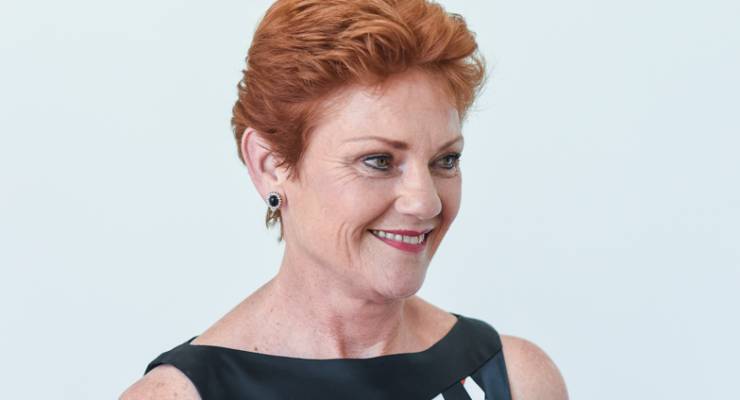
Whether or not Palmer stands for the Senate, it seems most unlikely this election that we have heard the last of that most resilient of Australian political species: the outspoken maverick from Queensland.
The state’s demonstrated its enthusiasm for outsiders in 2013 when a 21% share of the Senate vote went outside the Coalition-Labor-Greens establishment, nearly half of which will be up for grabs when the Palmer United Party disappears as a serious political force at the looming election.
Not the Palmer himself would be willing to concede the point, having left the door very wide open on a Senate run when he broke the bad news of his decision not to recontest Fairfax.
Polling may be showing Palmer’s party failing to crack a single percentage point in the wake of the Queensland Nickel debacle, but there is no sign that this has dented his self-belief.
With the lower quota for election at a double dissolution in mind, he may very well imagine that the feat could yet be accomplished through judicious preference negotiations and some well-timed publicity stunts.
One problem among many with this scenario is that there is a something of a glut looming in the Queensland Senate maverick market.
Palmer will face direct competition from his erstwhile protege, Glenn Lazarus, who has engendered considerably more goodwill over the past three years than his former mentor, whose party he quit in March 2015.
A poll of Queensland Senate voting intention conducted by ReachTEL for The Australia Institute in mid-March credited Lazarus with 3% of the vote — not enough to get him elected perhaps, but a sizeable bite out of the minor party pie.
The parties of Nick Xenophon and Jacqui Lambie also have Senate candidates lined up in Queensland, and the ReachTEL poll suggests Xenophon in particular is making inroads, recording 3.4% across the state.
It’s also possible that the hard-right Australian Liberty Alliance will build a head of steam over the next two months, on the back of conservative outrage at the Malcolm Turnbull ascendancy and a gap in the market for anti-Islam sentiment.
If the Senate electoral system works the way the government planned, the effect of all this will be to dissipate the collective anti-major party vote, ensuring that none achieve the critical mass needed to win election.
However, the field includes one dark horse whose prospects deserve more attention than they have so far received (outside of a piece by Karen Middleton in The Saturday Paper).
Pauline Hanson has made seven unsuccessful attempts to return to politics since she lost her House of Representatives seat in 1998, and there is a tendency to assume her looming bid for a Queensland Senate will serve only to make it eight.
However, not all of Hanson’s failures have been wash-outs by any means — and the closest call was her most recent, when she came within 114 votes of unseating a Liberal National Party member in the rural seat of Lockyer at the Queensland state election in January last year.
In running for the Senate under the One Nation banner in her home state, and with the low quota for election at a double dissolution, Hanson faces considerably more favourable circumstances than in past bids in the lower house, as an independent or in New South Wales, where she barely registered as a Senate candidate in 2013 (it certainly didn’t help that she drew last position on the biggest ballot paper ever seen at a federal election).
What’s more, Hanson is one fringe candidate who actually stands to benefit from the new electoral system.
A number of Hanson’s past defeats have been the work of a combined effort by mainstream and left-of-centre parties to put her last in their preference order, the impact of which stands to be diminished by the new optional preferential regime.
Even without Hanson’s name on the ballot paper, One Nation was a favourite draw in 2013 for micro-party voters who exercised their own discretion in determining preferences, as the new system will require all voters to do.
More than one-third of those who voted below-the-line for the PUP included One Nation among their six highest-ranked parties, a distinction shared only by Katter’s Australian Party and the since-deregistered Climate Skeptics.
One Nation was also the favoured second preference destination of the 2.9% whose first preference went to the KAP, and performed nearly as well from the various religious and outdoor recreation parties.
It must be allowed that Hanson’s fame continues to weaken with every passing election cycle, with a newly emerging generation being only dimly aware of her — and an earlier generation from which she drew much of her original support having passed on.
But for a candidate like Hanson — or, indeed, Derryn Hinch in Victoria — winning one out of 12 available seats is not that tall an order, and even minor celebrity status might just be enough to do the job.
*Read more from Crikey‘s William Bowe at The Poll Bludger








Crikey is committed to hosting lively discussions. Help us keep the conversation useful, interesting and welcoming. We aim to publish comments quickly in the interest of promoting robust conversation, but we’re a small team and we deploy filters to protect against legal risk. Occasionally your comment may be held up while we review, but we’re working as fast as we can to keep the conversation rolling.
The Crikey comment section is members-only content. Please subscribe to leave a comment.
The Crikey comment section is members-only content. Please login to leave a comment.